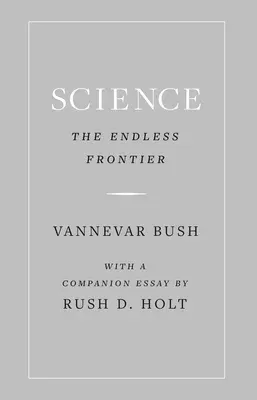The classic case for why government must support science--with a new
essay by physicist and former congressman Rush Holt on what democracy
needs from science today
Science, the Endless Frontier is recognized as the landmark argument
for the essential role of science in society and government's
responsibility to support scientific endeavors. First issued when
Vannevar Bush was the director of the US Office of Scientific Research
and Development during the Second World War, this classic remains vital
in making the case that scientific progress is necessary to a nation's
health, security, and prosperity. Bush's vision set the course for US
science policy for more than half a century, building the world's most
productive scientific enterprise. Today, amid a changing funding
landscape and challenges to science's very credibility, Science, the
Endless Frontier resonates as a powerful reminder that scientific
progress and public well-being alike depend on the successful symbiosis
between science and government.
This timely new edition presents this iconic text alongside a new
companion essay from scientist and former congressman Rush Holt, who
offers a brief introduction and consideration of what society needs most
from science now. Reflecting on the report's legacy and relevance along
with its limitations, Holt contends that the public's ability to cope
with today's issues--such as public health, the changing climate and
environment, and challenging technologies in modern society--requires a
more capacious understanding of what science can contribute. Holt
considers how scientists should think of their obligation to society and
what the public should demand from science, and he calls for a renewed
understanding of science's value for democracy and society at large.
A touchstone for concerned citizens, scientists, and policymakers,
Science, the Endless Frontier endures as a passionate articulation of
the power and potential of science.

